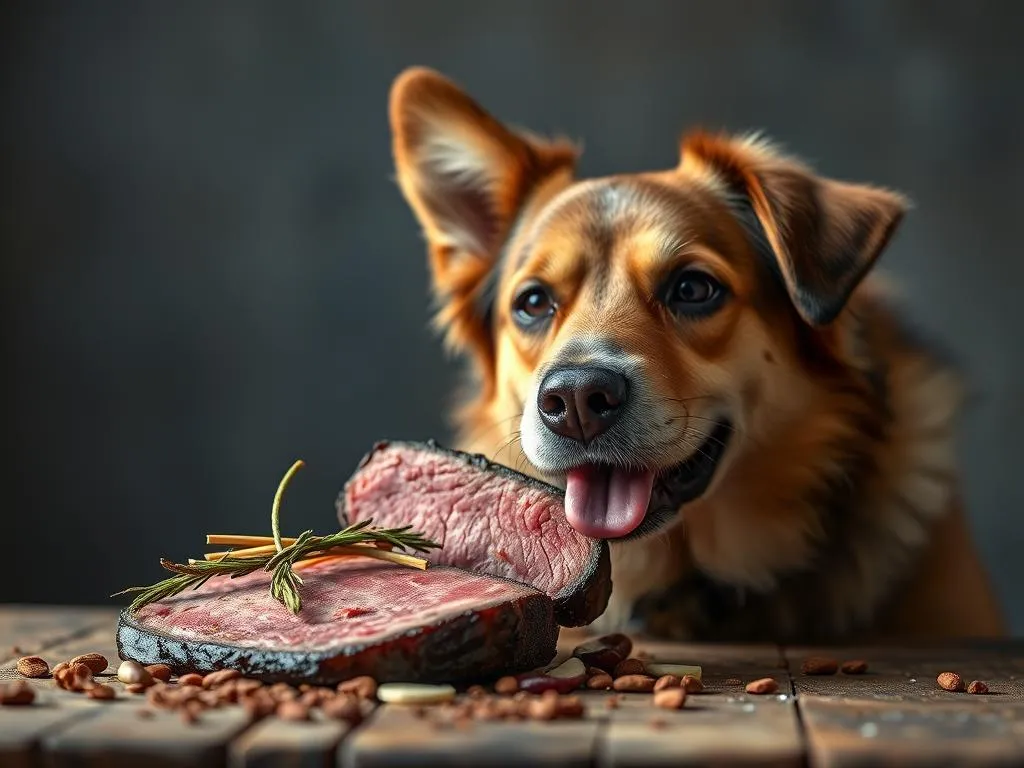
Introduction
When it comes to dog nutrition, a balanced and complete diet is crucial for ensuring the overall health and well-being of our furry friends. With a myriad of options available, it’s important to choose a protein source that not only meets their nutritional needs but also supports their lifestyle. Venison in dog food has emerged as a popular alternative to traditional protein sources, offering a unique combination of benefits for dogs of all ages and sizes. In this article, we will explore the numerous advantages of incorporating venison into your dog’s diet and its positive impact on their health.
Understanding Dog Nutrition
Essential Nutrients for Dogs
To understand why venison is beneficial, it’s essential to recognize the key nutrients dogs require:
- Proteins: Building blocks of the body, essential for growth, repair, and maintenance.
- Fats: Provide energy and support cell structure.
- Carbohydrates: Source of energy and aid in digestion.
- Vitamins and minerals: Crucial for various bodily functions and overall health.
Role of Protein in Dog Diets
Proteins play a vital role in a dog’s diet. They are necessary for growth, muscle development, and the maintenance of vital organs. Proteins are made up of amino acids, some of which must be obtained through the diet. While both animal and plant proteins can provide these amino acids, animal proteins are generally more digestible and beneficial for dogs.
Common Protein Sources in Dog Food
Traditionally, dog food has included protein sources like chicken, beef, lamb, and fish. However, as more pet owners become aware of their dog’s dietary needs and potential allergies, venison is gaining recognition as an excellent alternative protein source.
What is Venison?
Definition and Types of Venison
Venison is the culinary term for deer meat, and it encompasses various types, including elk and moose. This lean meat is known for its rich flavor and high nutritional value. The nutritional profile of venison is impressive, containing high levels of protein and essential nutrients while being low in fat.
How Venison is Processed for Dog Food
Venison sourced for dog food is typically harvested from farms or controlled environments to ensure quality and safety. During processing, quality control measures are implemented to minimize contamination and ensure that the meat is safe for canine consumption. This careful processing helps maintain the nutritional integrity of venison while making it suitable for dog food formulations.
Benefits of Venison in Dog Food
High-Quality Protein Source
One of the most significant venison in dog food benefits is its high-quality protein content. Venison boasts an excellent amino acid profile, making it highly digestible and beneficial for dogs, especially those who are active or working. The protein in venison supports muscle development and overall health.
Hypoallergenic Properties
Many dogs suffer from food allergies or sensitivities, often triggered by common protein sources like chicken or beef. Venison is considered a hypoallergenic protein, making it an ideal option for dogs that have food sensitivities. By switching to venison, owners may find relief for their pets from allergy-related symptoms.
Rich in Nutrients
Venison is not only a great protein source but is also rich in essential vitamins and minerals. It contains:
- B Vitamins: Vital for energy metabolism and maintaining a healthy nervous system.
- Iron: Crucial for red blood cell production and preventing anemia.
- Zinc: Supports immune function and skin health.
These nutrients play a significant role in promoting overall dog health and well-being.
Lean Meat Option
With its low-fat content, venison is an excellent choice for dogs that need to manage their weight. Obesity is a growing concern among pets, and venison in dog food provides a tasty option that supports weight management without compromising nutrition. This makes it suitable for dogs with weight-related issues.
Palatability and Taste
Dogs are known for their discerning taste buds, and many pet owners have found that their dogs enjoy the rich flavor of venison. The palatability of venison can enhance feeding behavior and encourage picky eaters to consume their meals, ensuring they receive the necessary nutrients.
Incorporating Venison into Your Dog’s Diet
Venison-Based Dog Food Options
There are several commercial dog food brands that offer venison as a primary protein source. These products come in various forms, including:
- Dry kibble: Convenient and easy to store.
- Wet food: Often more palatable and hydrating.
- Raw diets: Some owners opt for raw venison, which can be beneficial but should be approached with caution.
Homemade Dog Food Recipes with Venison
For those interested in making their dog food, venison can be a fantastic ingredient. Here are a couple of simple recipes:
Venison and Sweet Potato Stew
- Ingredients:
- 1 cup ground venison
- 1 cup chopped sweet potatoes
- 1/2 cup carrots
- 1/2 cup peas
-
2 cups low-sodium chicken broth
-
Instructions:
- In a pot, brown the ground venison.
- Add sweet potatoes, carrots, and peas.
- Pour in the chicken broth and simmer until vegetables are tender.
Venison and Quinoa Bowl
- Ingredients:
- 1 cup cooked quinoa
- 1 cup ground venison
- 1/2 cup spinach
-
1/2 cup carrots, diced
-
Instructions:
- Brown the ground venison in a skillet.
- Stir in spinach and carrots until softened.
- Mix with cooked quinoa and serve.
Both recipes can provide a balanced meal, but it’s essential to ensure they’re nutritionally complete.
Transitioning to Venison Dog Food
Switching your dog to venison-based food should be done gradually. Start by mixing a small amount of the new food with their current diet, gradually increasing the venison portion over a week or so. Watch for any signs of allergies or intolerance, such as itching or gastrointestinal upset.
Considerations and Precautions
Potential Risks of Venison in Dog Food
While venison offers many benefits, there are some considerations to keep in mind:
- Sourcing concerns: Wild venison may carry risks such as parasites or diseases. Therefore, it’s crucial to choose high-quality, commercially processed venison.
- Nutritional imbalances: Homemade venison diets may lack essential nutrients if not properly balanced.
Consultation with a Veterinarian
Before making any significant changes to your dog’s diet, it’s essential to consult with a veterinarian. They can help assess whether venison is a suitable protein source for your dog based on their unique health needs and dietary requirements.
Conclusion
Incorporating venison in dog food can provide numerous benefits, from high-quality protein and hypoallergenic properties to essential nutrients and palatability. As pet owners become more conscious of their dog’s nutritional needs, venison stands out as a valuable protein source that supports overall health. A balanced diet is vital for your dog’s well-being, and considering venison can be a significant step towards ensuring they receive the nutrition they deserve.
Frequently Asked Questions (FAQs)
Is venison safe for all dogs?
Generally, venison is safe for most dogs, but individual sensitivities can occur. Always consult your veterinarian before introducing new proteins.
How does venison compare to other meats in dog food?
Venison is often more digestible and less likely to cause allergies compared to common proteins like chicken or beef, making it a superior choice for many dogs.
Can I feed my dog raw venison?
Feeding raw venison is controversial. If you choose to feed raw, ensure it is sourced from reputable suppliers and follows safety guidelines to prevent bacterial contamination.
What should I look for in venison dog food products?
Look for products that specify high-quality venison as the primary ingredient, along with a balanced mix of other necessary nutrients, and avoid fillers or artificial additives.
This comprehensive guide to the benefits of venison in dog food aims to provide valuable insights for dog owners looking to enhance their pet’s nutrition. By understanding the advantages and considerations involved, you can make informed choices that contribute to the health and happiness of your canine companion.









